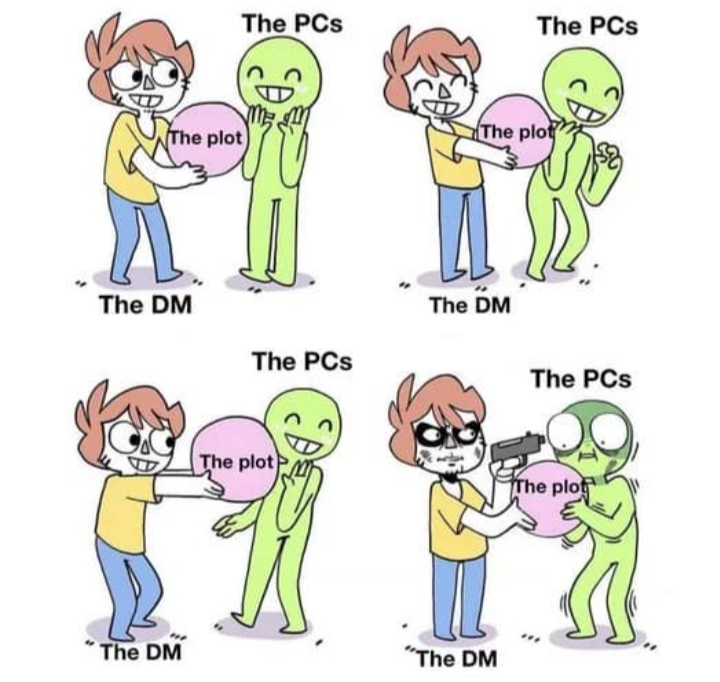this post was submitted on 30 Dec 2024
517 points (99.1% liked)
RPGMemes
11442 readers
387 users here now
Humor, jokes, memes about TTRPGs
founded 2 years ago
MODERATORS
you are viewing a single comment's thread
view the rest of the comments
view the rest of the comments

If the players ignore your Threat, follow through with the Threat.
If the players continue to ignore the Consequences of the Threat, admit you're now running a different game than you planned and adapt, brutally following through on the Consequences to every conclusion you can find
At some point, I think just telling the players that you don't want to run a campaign that they're not interested in is better than trying to punish them.
I think it depends on the table (and possibly the game). I'm playing in a game where the bad guys usually have their own timetables for doing things. If we as players get sidetracked, there's the expectation that the bbeg continues with their plan unopposed. It's also within reason that if the players are known to the bbeg, they will do things to keep us occupied / distract us.
With that said, if this is not what the table expects, then everyone needs to sit down and talk it over.